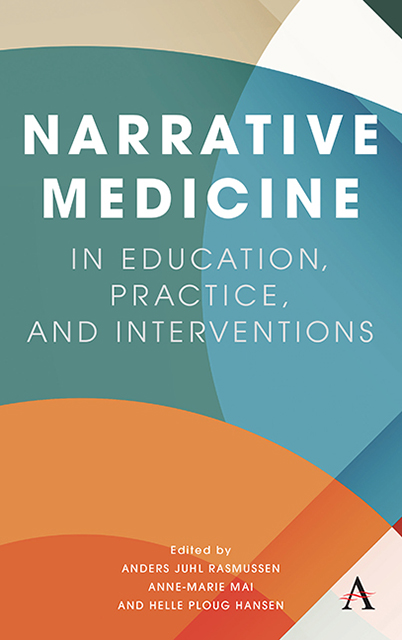Chapter 10 - Socrates and Sickness: On Philosophizing through Narrative
Published online by Cambridge University Press: 08 June 2023
Summary
Using examples from Socratic dialogue group sessions that have taken place, the chapter presents a particular way of “close reading” oral narratives employed in such groups and explores how they can contribute a philo sophical dimension to narrative medicine. It starts by presenting Socratic dialogue as a practice that examines people's views of life, their values, and the essential elements of their individual experience. The chapter goes on to dig deeper into experiences and conversations taken from Socratic dialogue group sessions conducted with cancer patients in rehabilitation. Extracts shown here from these conversations demonstrate how the participants’ own everyday experiences illustrate in various ways the group's chosen philosophical question and how dialogical close reading helps them to discover the universal narrative underneath an isolated oral account. The task of the facilitator is to ensure that, through the dialogue that develops around an everyday story, shared philosophical reflection is generated in which the group might be said to “think chorally.” Finally, the chapter suggests that Socratic dialogue, in which people are enabled to philosophize through narratives, might also be found to have positive effects for health professionals.
Prologue
“To be or not to be, that is the question,” declares Hamlet in Shakespeare's play The Tragedy of Hamlet (Act III. Sc 1. l. 57). The monologue containing this state-ment about being and nothingness is resonant with Plato's thinking. In Plato's dialogue The Apology (2002), we hear Socrates philosophizing about life and, in particular, about death, having been sentenced to death by his own hand. Since ancient times, the theater has provided a stage for reflection about how people Interventionsought to live and what it means to be human (Woodruff, 2010). The same goes for philosophy. Philosophy provides a stage for reason's reflection and the soul's introspection, for people's own thoughts, emotions, and experiences can be set alongside observations from great thinkers about the nature of reality, about what is good, true, just, and beautiful. In Socrates, however, philosophy also gives rise to dialogue. Both theater and Socratic dialogue (SD) are played out between people in situ, and both demand a collective engagement to create dra-matic art on stage and existential art in dialogue.
However, while human dramas on the stage are fictional, real dramas take place in Socratic dialogue groups (SDG).
- Type
- Chapter
- Information
- Narrative Medicine in Education, Practice, and Interventions , pp. 167 - 182Publisher: Anthem PressPrint publication year: 2022

